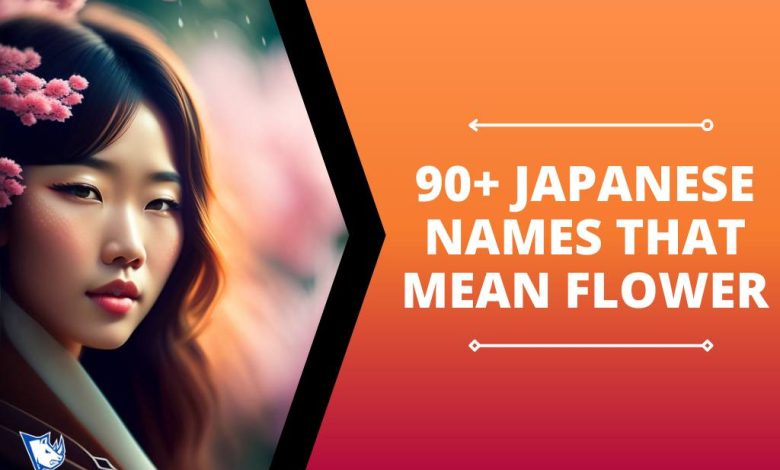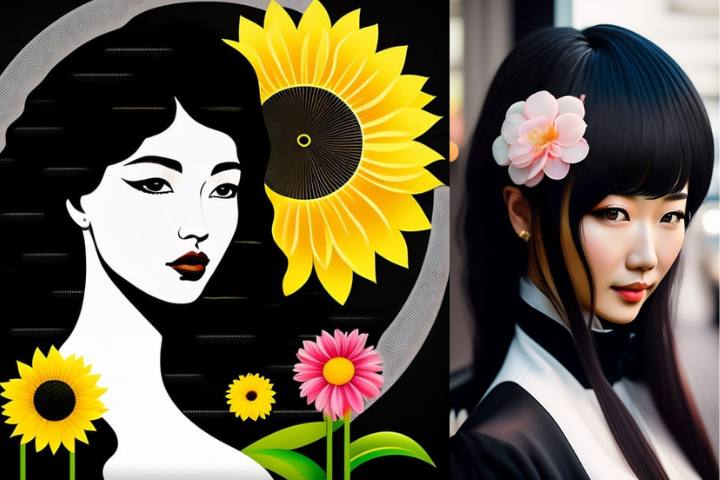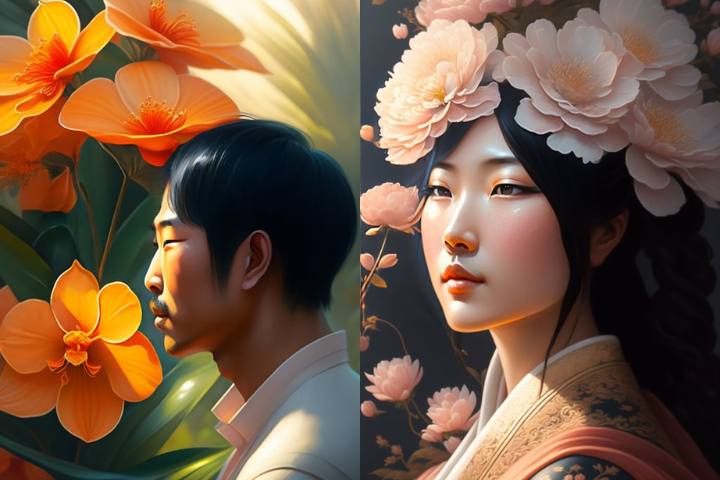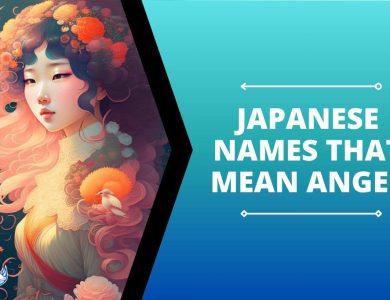90+ Japanese Names That Mean Flower

Flowers have always held a special significance in Japanese culture, symbolizing beauty, purity, and new beginnings. In this blog, we will explore the rich tradition of Japanese names that mean flower. Each name carries its own unique symbolism and history, reflecting the natural beauty and elegance of these blooms.
Whether you are looking for a meaningful name for your child or simply wish to learn more about the fascinating world of Japanese language and culture, this blog is sure to inspire and enlighten. Join us on this journey as we delve into the world of Japanese names that mean flower and discover the hidden stories and meanings behind each delicate blossom.
Japanese Names That Mean Flower
Japanese names that mean flower: a captivating journey through the language of flowers. Uncover the elegance and charm behind each name.
Sakura – Cherry Blossom.
Hana – Flower.
Tsubaki – Camellia.
Sumire – Violet.
Ayame – Iris.
Ren – Lotus.
Kiku – Chrysanthemum.
Momo – Peach Blossom.
Ran – Orchid.
Yuri – Lily.
Shion – Aster.
Himawari – Sunflower.
Ume – Plum Blossom.
Suisen – Daffodil.
Asuka – Tomorrow Perfume, as in the scent of a flower.
Kaede – Maple, but also associated with the tree’s flowers.
Renge – Lotus.
Botan – Peony.
Kikyo – Bellflower.
Ichirin – One Flower.
Karin – Quince Flower.
Yurika – Lily Flower.
Fuyuka – Winter Flower.
Haruka – Spring Flower.
Sayaka – Clear Flower.
Maika – Dance Flower.
Nanami – Seven Seas, but “nana” also means “seven flowers”.
Nozomi – Wish, but also a type of flower in Japanese literature.
Hinata – Sunflower.
Aoi – Hollyhock.

Akane – Brilliant Red, like the color of a flower.
Ayaka – Colorful Flower.
Azami – Thistle Flower.
Hikari – Light, as in the light needed for flowers to grow.
Hotaru – Firefly, but also associated with summer and flowers.
Izumi – Fountain, spring, as in water for flowers.
Junko – Pure Child, but “ko” can also mean a small flower.
Kanna – Summer Waves, but “ka” can also mean flower.
Kohana – Little Flower.
Mai – Dance, but also associated with dancing petals.
Maki – True Hope, but “ki” can mean tree or wood of flowering trees.
Manami – Beautiful Flower.
Megumi – Blessing, but “mi” can mean beautiful like a flower.
Miho – Beautiful Sail, but “ho” can mean ear of grain or blossom.
Miku – Beautiful Long Time, but “ku” can be associated with chrysanthemum.
Minori – Truth, but also refers to the fruit of a plant or flower’s seed.
Misaki – Beautiful Bloom.
Mitsuki – Beautiful Moon, but “ki” can mean radiance like that of a flower’s beauty.
Miyu – Beautiful Kindness, but “yu” can mean gentleness like a flower’s petals.
Momoka – Peach Flower Fragrance.
Nana – Seven, often associated with multiple flowers as in a bouquet.
Narumi – Beautiful Greenery, but “mi” can mean beauty as in flowers.
Rika – Fragrant Flower.
Rin – Dignified, but also associated with the phosphorescent beauty of a blossom.
Saki – Blossom Hope.
Shiori – Bookmark, but also refers to a guide like the way flowers guide bees.
Suzu – Bell, which can be shaped like a flower bell.
Yuka – Gentle Flower.
Yumiko – Reason Beautiful Child, but “ko” can mean small flower as well.
Yuriko – Lily Child.
Akiko – Autumn Child, with “ko” suggesting small flowers of autumn.
Chouko – Butterfly Child, butterflies are associated with flowers.
Emiko – Smiling Child, with “ko” often representing small flowers in names.
Haruko – Spring Child, spring being the season of blooming flowers.
Hoshiko – Star Child, stars likened to blossoms in the sky.
Kyouko – Mirror Child, with “ko” signifying small flowers reflected in a mirror.
Maiko – Dance Child, with dancing movements reminiscent of swaying flowers.
Mariko – True Reason Child, with “ko” indicative of small delicate flowers.
Masako – Correct Child, with “ko” suggesting the rightness of a flower’s bloom.
Mayuko – True Gentle Child, with “ko” symbolizing the gentleness of a flower.
Naoko – Honest Child, with “ko” representing the sincerity of a flower’s beauty.
Noriko – Law Child, with “ko” conveying the orderliness of a flower’s pattern.

Reiko – Gratitude Child, with “ko” expressing the thankfulness for a flower’s bloom.
Sachiko – Happiness Child, with “ko” reflecting the joy a flower brings.
Takako – Noble Child, with “ko” suggesting the regality of a flower’s stance.
Tomoko – Wisdom Child, with “ko” denoting the wisdom found in the natural patterns of flowers.
Yasuko – Peace Child, with “ko” symbolizing the peace found in a garden of flowers.
Yoshiko – Good Child, with “ko” representing the goodness of a flower’s purity.
Yumeko – Dream Child, with “ko” indicating the dreamlike quality of a flower’s beauty.
Yuriko – Lily Child.
Chiaki – Thousand Autumns, with the idea of endless blooming cycles.
Chiharu – Thousand Springs, evoking images of many flowers blooming.
Chika – Thousand Flowers.
Erika – Blessed Fragrance, akin to the scent of flowers.
Hanako – Flower Child.
Kaori – Fragrance, often associated with the sweet scent of flowers.
Kiyomi – Pure Beauty, like the simple beauty of a flower.
Komachi – Ancient City Beauty, but “machi” can mean waiting as in waiting for a flower to bloom.
Madoka – Circle, but can also mean round like the shape of some flowers.
Maiha – Dance Leaf, with “ha” suggesting leaves that accompany flowers.
Mio – Beautiful Cherry Blossom.
Miya – Sacred House, but can also mean shrine where flowers might be offered.
Nahoko – Wave Child, with “ko” evoking the image of flowers on water.
Natsuki – Summer Hope, but “ki” can also mean tree or wood of flowering trees.
Rikako – Value Flower Child.
Sachiho – Happiness Leaf, with “ho” suggesting leaves that accompany flowers.
Also Read:
Final Thought
Japanese names that mean flower carry deep cultural significance and beauty. These names not only reflect the natural world but also symbolize characteristics such as purity, grace, and resilience. Whether you are looking for a name for your child or simply appreciate the elegance of Japanese culture, the rich meanings behind these floral names add a special touch to any individual. Embracing these names can serve as a connection to nature and a reminder of the subtle yet profound beauty that surrounds us.



